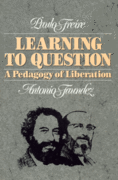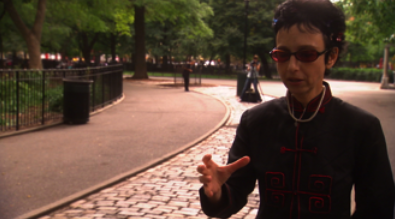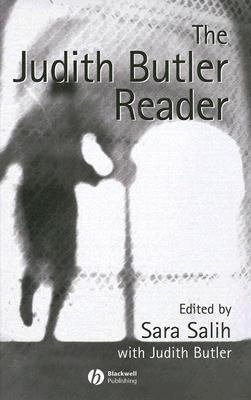 This entry is part of my series on care and its connections with troublemaking. As I mentioned previously (here and here), I am interested in thinking through what care is and how it does/doesn’t connect with troublemaking. So, what does it mean to care? Having just written a brain-melting chewy bagel about Foucault, Butler and virtue ethics, I want to keep this entry a little lighter–maybe light like a double-glazed donut…umm, double-glazed.
This entry is part of my series on care and its connections with troublemaking. As I mentioned previously (here and here), I am interested in thinking through what care is and how it does/doesn’t connect with troublemaking. So, what does it mean to care? Having just written a brain-melting chewy bagel about Foucault, Butler and virtue ethics, I want to keep this entry a little lighter–maybe light like a double-glazed donut…umm, double-glazed.
Anyway, this morning my son FWA, who is 2 weeks away from turning 7, read his weekly “watch me read” book to me (thanks, FWA for waiting until this morning to remind me about this assignment–just 30 minutes before you had to leave for school!). This week’s book, which is part of Houghton Mifflin’s Invitations to Literacy Series, was “We Care.” As you might imagine–that is, if you are a regular reader here–the title made me curious. What do they mean by care? And, who is the we that cares?
So, the story is about a little girl who passes by a local homeless shelter called Main Street on the way to school everyday. One day she decides to ask her teacher about the shelter and whether or not the people who go there have beds and enough food. In other words, she is curious and cares about these people and their needs. The teacher doesn’t know but decides that being curious about Main Street might be a good project for the whole class so she encourages them to curious about the residents of Main Street. But, the teacher doesn’t just want her students to be curious, she wants them to do something with that curiosity. She organizes the students and their parents into a plan of action: they will give care to the residents of Main Street by bringing food and other things the residents might need and by performing a play. A big chunk of the story (which is 16 pages total) is devoted to describing how the students, their parents, and the teacher all get involved in preparing the gift boxes and the play. Towards the end of the story, the class goes to the shelter and delivers their boxes to the head of Main Street and performs the play for the residents. The experience gives the students such a “warm feeling” that they decide they want to do more. The teacher suggests that they tell other classes about the shelter project so that those classes can care about and care for too. Here is how the story ends:
Now our school often brings food and other things to Main Street House. We don’t put on a show every time we go, though. But that’s all right. Our class trips show we care (16).
So, “we care” means:
- to be curious about others
- to care about those others and their needs
- to do something for those one cares about by giving care to them
- to spread the word to others
- to engage collectively in caring about and caring for
There are many things that I like about this story. I like that kids are being encouraged to care. I like that caring about isn’t enough and that action, in the form of giving care, is also required. I like that that care is imagined as collective and involving more than an individual; it includes the class, the entire school, and even the larger community (including parents). I like that continued and repeated caring is necessary–students shouldn’t just care once, they need to care again and again by visiting Main Street House repeatedly.
But (you knew it was coming, right?), I was also troubled by this story because it left out some crucial steps and some very important actors in the process. First, the students are never encouraged to collectively develop or critically reflect on how or why they should care about these residents. The process of figuring out what form of care might be most effective for the residents is never discussed. Moreover, the reasons why the residents are homeless are never addressed (or even asked). The student, Jynelle, doesn’t ask why some people are living at Main Street instead of in their own homes; she merely asks if they have enough beds there. I don’t know how much time you have spent around little kids, but the first question that they are often compelled (and it does almost seem like a compulsion) to ask is: Why? Athough maybe by the time students are in 3rd grade, they have already been conditioned out of asking why–scary thought. In the context of this story, not asking why is significant. Asking why indicates that the way something appears to be should not just be assumed to be the way it should be or the way that it always has been (In another entry, I discuss the importance of why for critical thinking and troublemaking). When the student doesn’t ask why, it is implied that why doesn’t matter because homeless shelters are just the way the world works: some people are homeless, some aren’t. It’s a fact of life. Don’t try to change it, because you can’t. For me, the failure to ask why is a major problem. Asking why isn’t just about trying to make trouble by creating extra work for the teacher or by distracting us from the real work of developing solutions or plans of action for caring about those people. To ask why is to claim that the situation of being homeless is not to be assumed and that it is something that could and should be different. It is the first step in challenging and resisting injustice. And it is the first step in transforming yourself into a person-who-doesn’t-merely-accept. Uh-oh, didn’t I just talk about this in my last entry? This entry is in danger of becoming another chewy bagel. Let’s just say, asking why is important.
A second problem: Something big is missing in this story: the actual people who are receiving the care, the residents of Main Street Shelter. We never get to read about the actual stories of these people. And they aren’t visually represented in the text. When the story describes the students’ play at Main Street, the illustrations are of the children performing. We also never get to read about their reactions to the care that they are given. When the story describes the effects of the Main Street project, there is no discussion of how it benefits the residents or how the care makes a difference in their lives. Instead, the story focuses on how giving care to the residents gave the students warm feelings. This is a problem because giving effective care necessarily requires that we ask about how we should give care. We shouldn’t assume (or presume) to know what needs should be addressed. We need to ask those to whom we are giving care, How can we help you? Or, even better, how can we make it possible for you to help yourselves? This is also a problem because, by leaving the actual voices and experiences of those who need care out of the story, those who receive care are reduced to objects (as opposed to subjects) of care.
Since this entry is getting too long (I didn’t realize that I would have so much to write about this book), I need to stop. But, before I do, I want to offer some practical ways to tell this story differently–practical ways that might be even approved for use in an elementary school…well, as long as it isn’t in Texas. So, here are my suggestions for some small (but potentially transformative) ways to make this a story that offers a more expansive and effective vision of what it means to care:
- Have the teacher contact the shelter and actually ask: what can we do to help? What care can we give to your residents? You could have her ask the director or, even better, have her talk with actual residents.
- What about including a brief mention (even a sentence would help) of how a resident or the director visited the class and told them about the shelter and what the residents needed.
- Let Jynelle ask why. You don’t even have to answer it (although that would be awesome), just let her ask it.
- Include some faces, names, voices of the residents. At least include them in some of the pictures.
Okay, here is one suggestion that might be too ambitious for a third-grade level book:
- Instead of talking so much about how students get a warm feeling because they feel good about caring for others, focus just a little more attention on why they are sad (at least you mention it on page 13) or even why they are mad that others don’t have a home.
Okay, my brain (and the rest of me too) is done. Now I want to find some kids’ books that talk about social justice and encourage kids to question and challenge. Any suggestions?
 After reading this brief excerpt from the interview, I was curious: what is the pedagogy of the question? The idea of asking lots of questions is central for my own pedagogical practices, particularly in my feminist debates class; the final part of this entry exemplifies this approach. I became even more curious when I found Freire’s book, Learning to Question. Now I just need time to read it and think about it in relation to my own practices and ideas about the question/questions. Maybe I will even assign part or all of this book to my students next fall in my Feminist Pedagogies course?
After reading this brief excerpt from the interview, I was curious: what is the pedagogy of the question? The idea of asking lots of questions is central for my own pedagogical practices, particularly in my feminist debates class; the final part of this entry exemplifies this approach. I became even more curious when I found Freire’s book, Learning to Question. Now I just need time to read it and think about it in relation to my own practices and ideas about the question/questions. Maybe I will even assign part or all of this book to my students next fall in my Feminist Pedagogies course?





